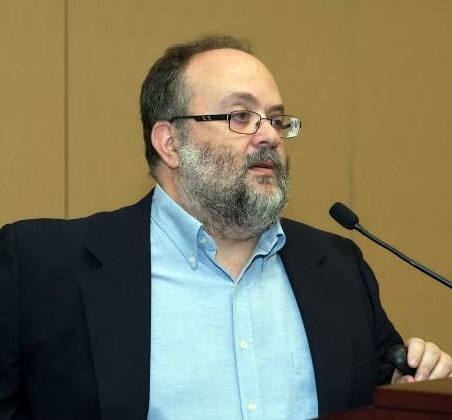|

|
DR. VICTOR ASAL
JUNE MEMBER OF THE MONTH
University of Albany
Center for Policy Research at Rockefeller College of Public Affairs and Policy
Member since 1999
@Victor_Asal
|
Victor Asal is a professor in the Department of Political Science and Director of the Center for Policy Research at Rockefeller College of Public Affairs and Policy at the University at Albany. He was chair of the Department of Public Administration at Rockefeller College from 2015-2019. He is also currently an editor of the Journal of Political Science Education. He has a Ph.D. from the University of Maryland (2003). He is affiliated with the National Consortium for the Study of Terrorism and Responses to Terrorism (START), a DHS Center of Excellence. His research focuses on nonstate actor violence and the causes of political discrimination particularly related to ethnicity and gender and particularly discrimination against the LGBTQ community. He also writes about active learning pedagogy as a tool for teaching political science in the classroom. Asal has been involved in research projects funded by The Department of Homeland Security, the Defense Advanced Research Projects Agency, Defense Threat Reduction Agency, The National Science Foundation, and The Office of Naval Research. He has published in the Journal of Politics, the Journal of Conflict Resolution, International Organization, Journal of Peace Research, International Studies Quarterly, Journal of Political Science Education, International Studies Perspectives, Studies in Conflict and Terrorism, British Journal of Political Science, Conflict Management and Peace Science, and Terrorism and Political Violence as well as other journals.
WHY DID YOU BECOME A POLITICAL SCIENTIST?
For as long as I can remember I have been interested in why people are discriminated against and why some people mobilize and why some turn to violence when mobilized. The seed for some of this interest I think started from listening to stories from my father about his experience as a Tunisian Jew and especially when the Nazis occupied the country during World War II. This interest led me to want to research the factors that explained political discrimination and that led me to an interest in political violence by non-state actors. In addition I have always had a love for teaching (probably inherited from my mother who taught for many years as a kindergarten teacher). Being a professor seemed to be the perfect combination for me in combining research and teaching – with a great feedback loop between the two for me. The moment when you can help a student see the world in a different way that helps them understand, for example, discrimination and privilege in our world today, is an accomplishment that makes all the hard work worthwhile.
WHY DID YOU JOIN APSA AND WHY DO YOU CONTINUE TO STAY INVOLVED?
As a graduate student it became very clear to me that joining APSA as a political scientist was a no brainer - the annual conference is the place to go to network with other political scientists and to learn about cutting edge research by going to panels. In addition, the journals that APSA publishes are key for following the state of the political science literature. The Teaching and Learning Conference has also been a tremendous boon by exposing me to new and very useful teaching approaches and exercises that has enriched my teaching and I believe has made my teaching better for me and for the students. I stay involved because APSA is a critical resource for me as a political scientist and educator. Serving as one of the editors of APSA’s Journal of Political Science Education has been a pleasure working with my co-editors and letting me see all the great work that the members of APSA are writing about teaching.
WHAT IS THE MOST CHALLENGING ASPECT OF BEING A POLITICAL SCIENTIST?
I think one of the most challenging aspects of being a political scientist is the balancing act of trying to balance and succeed at research, teaching and service and doing what you need to do in all three at the same time. It is not a surprise to me that many of us work many hours more than people seem to think that we do. Also depending on what you research (and I research oppression and killing) can get you down. It is really important to know when to give yourself a break when you are studying these kinds of topics.
IF YOU COULD GIVE ONE PIECE OF ADVICE TO SOMEONE IN THEIR GRADUATE/UNDERGRADUATE YEARS, WHAT WOULD IT BE AND WHY?
My key pieces of advice for undergraduates who are thinking of doing a PHD is:
- Think hard about if you really want to be a professor- do you love research and love teaching? It is a tremendous investment in time and effort and if you don’t want to engage with both of these elements it may not be the right job. If you do love both then go for it.
- Only go to a doctoral program that will fund you. Graduate school is expensive and you should try hard not to go into debt. Also even if you have the money to pay for a doctoral program having a school fund you is a good way to see that they really value you as a student.
OUTSIDE OF POLITICAL SCIENCE, TELL US SOMETHING INTERESTING ABOUT YOURSELF.
I am a huge fan of science fiction and fantasy. If you have not read it yet I strongly encourage you to read the Book of Three and the series that follows (in my humble opinion it is better than the Lord of the Rings). Oh – and I also love the game Diplomacy- which may also have something to do with me wanting to become a political scientist.
